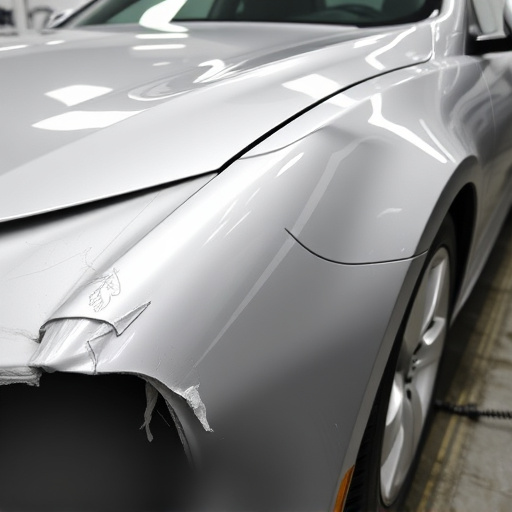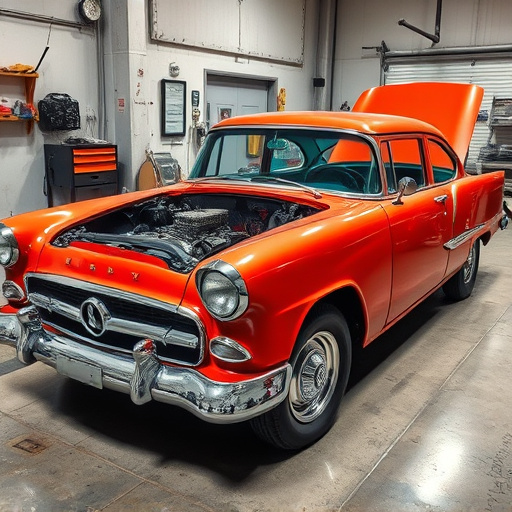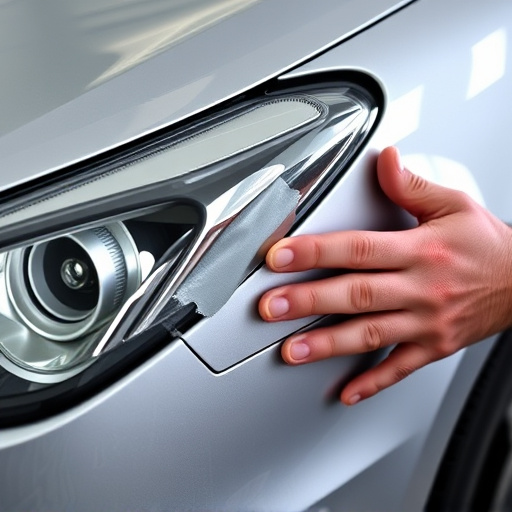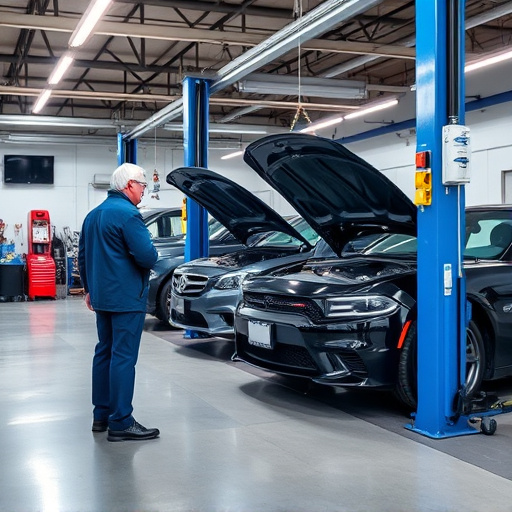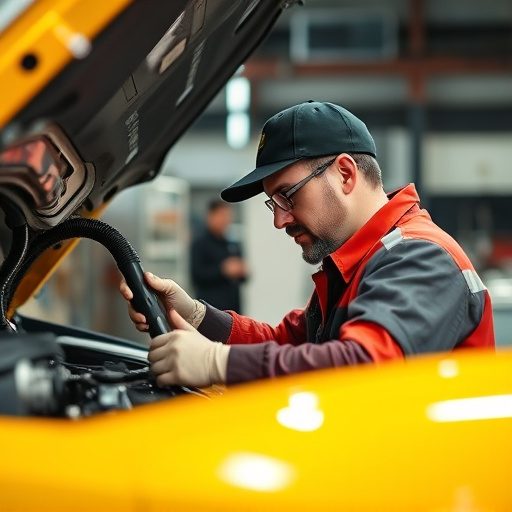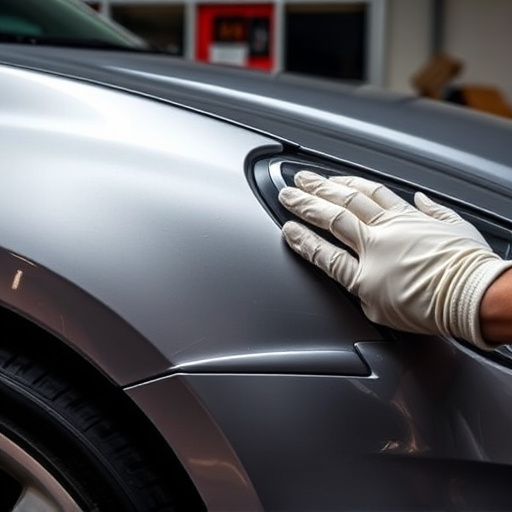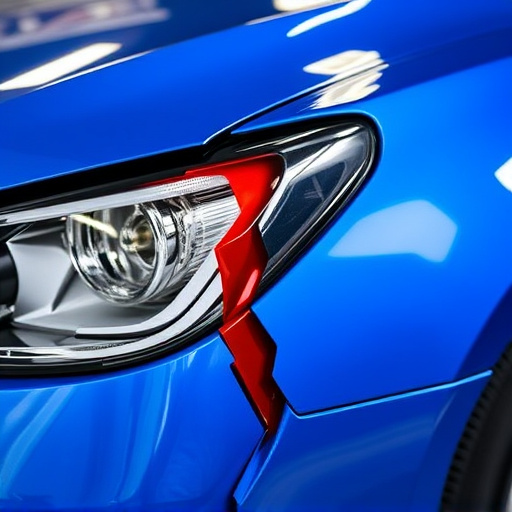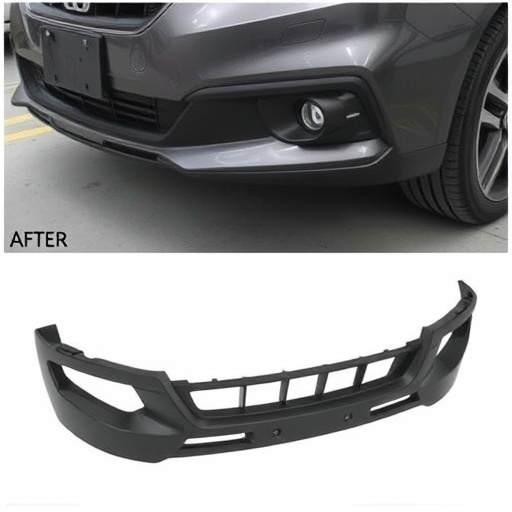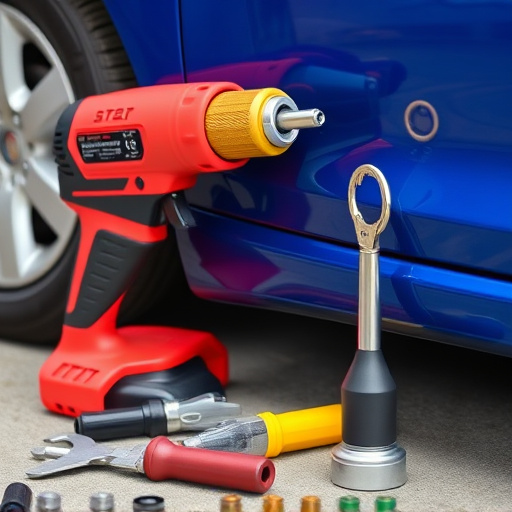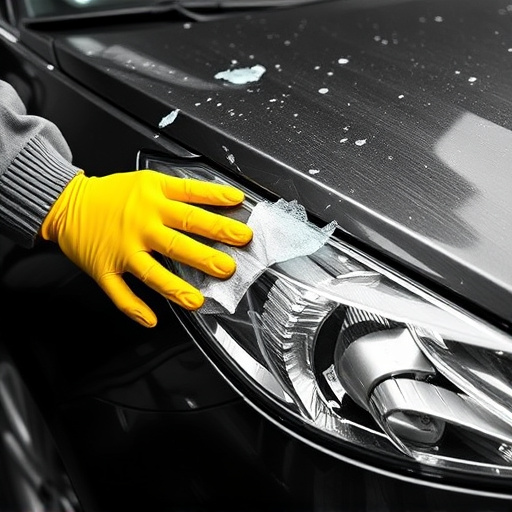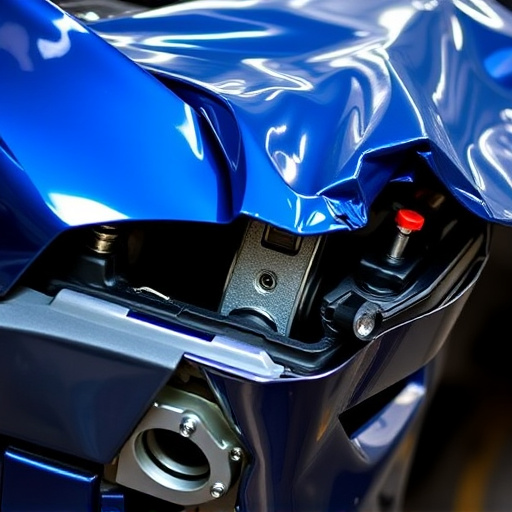Aluminum body components offer a cost-effective, durable, and lightweight solution for vehicle repairs, enhancing safety, fuel efficiency, and performance. With superior strength, corrosion resistance, and easy shaping compared to steel, aluminum components are ideal for minor dents to extensive car body work, appealing to eco-conscious consumers seeking long-lasting, high-quality repairs.
Aluminum body components are transforming vehicle repairs, offering a lightweight yet robust alternative to traditional materials. This article explores the multifaceted benefits of integrating aluminum in automotive maintenance. From enhancing performance through reduced weight to cost-efficient repair solutions and improved safety features, aluminum proves its worth. Discover how this innovative approach not only boosts fuel efficiency but also contributes to a more sustainable future by minimizing resource consumption.
- Lightweight and Strong: Aluminum's Advantages
- Cost-Effective Solutions for Repair and Replacement
- Improved Safety and Fuel Efficiency Features
Lightweight and Strong: Aluminum's Advantages

Aluminum body components offer a unique advantage in vehicle repairs due to their exceptional strength-to-weight ratio. This means that, despite being lighter than steel, aluminum can withstand significant structural stress, making it ideal for car body repair and bumper repair applications. Its lightweight nature reduces the overall weight of the vehicle, leading to improved fuel efficiency and better handling—a significant benefit in today’s market where every kilogram counts.
In addition, aluminum is highly resistant to corrosion, a common issue in vehicle repairs. This natural barrier makes it an excellent choice for long-lasting car body repair solutions, ensuring that your vehicle remains sturdy and reliable over time. Whether it’s a bumper repair or a more extensive car body repair, aluminum components provide a durable and cost-effective alternative to traditional materials, enhancing the overall quality and performance of the repair.
Cost-Effective Solutions for Repair and Replacement

When it comes to vehicle repairs, especially for car damage repair and car dent repair, aluminum body components offer a highly cost-effective solution. These lightweight and durable materials are increasingly favored by automotive body shops as they provide an efficient and affordable way to fix and replace damaged panels. The use of aluminum is particularly beneficial in mitigating the costs associated with traditional steel body parts, making it an attractive option for both repair shops and vehicle owners.
Aluminum body components have a lower production cost compared to their steel counterparts, which translates to more savings when used in repairs. Their malleability allows for easier shaping and fitting, reducing labor expenses during installation. Additionally, aluminum’s resistance to corrosion means that these components can last longer, further lowering the need for frequent replacements and associated costs. This makes it an ideal choice for both minor dent repairs and more extensive car body work, ensuring a reliable and cost-efficient outcome in any automotive body shop.
Improved Safety and Fuel Efficiency Features

The integration of aluminum body components into vehicle repairs offers a significant edge in enhancing both safety and fuel efficiency. Aluminum is renowned for its exceptional strength-to-weight ratio, which plays a pivotal role in strengthening vehicle structures. This feature ensures that the auto body repair process results in sturdier and more durable cars, reducing the risk of structural failures during accidents. By employing aluminum, vehicle body shops can create lighter vehicles, leading to improved fuel efficiency and lower emissions—a benefit increasingly sought by environmentally conscious consumers.
Additionally, aluminum’s corrosion resistance is a valuable asset for auto collision centers. Unlike steel, which can rust over time, aluminum retains its integrity, ensuring that repaired vehicles remain in optimal condition for longer. This property not only extends the lifespan of the vehicle but also saves auto body repair shops and owners money by delaying the need for future repairs.
Aluminum body components offer a compelling mix of lightweight strength, cost savings, and safety enhancements in vehicle repairs. Their adoption not only contributes to more efficient transportation but also promotes sustainability by reducing overall vehicle weight and improving fuel economy. As the automotive industry continues to evolve, aluminum will undoubtedly play a pivotal role in shaping the future of safer, lighter, and more environmentally friendly vehicles.


